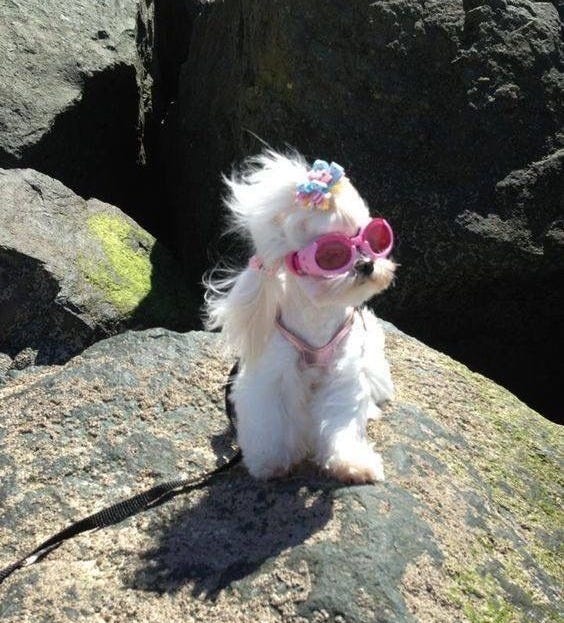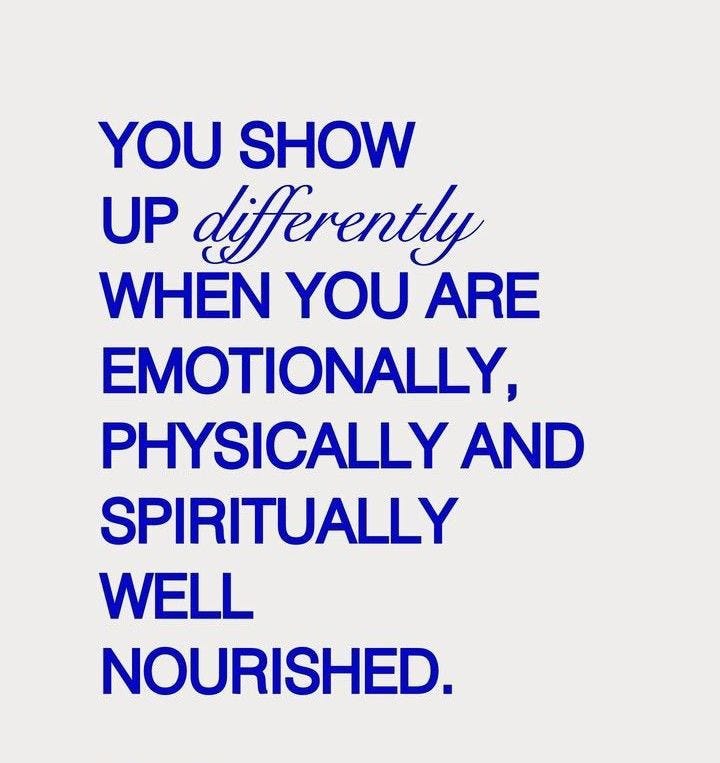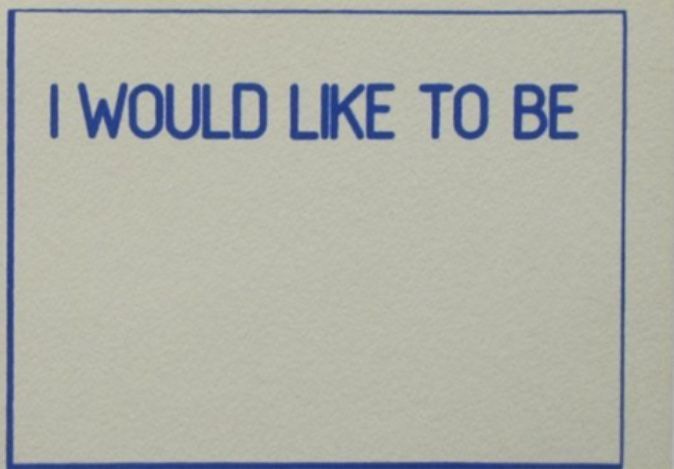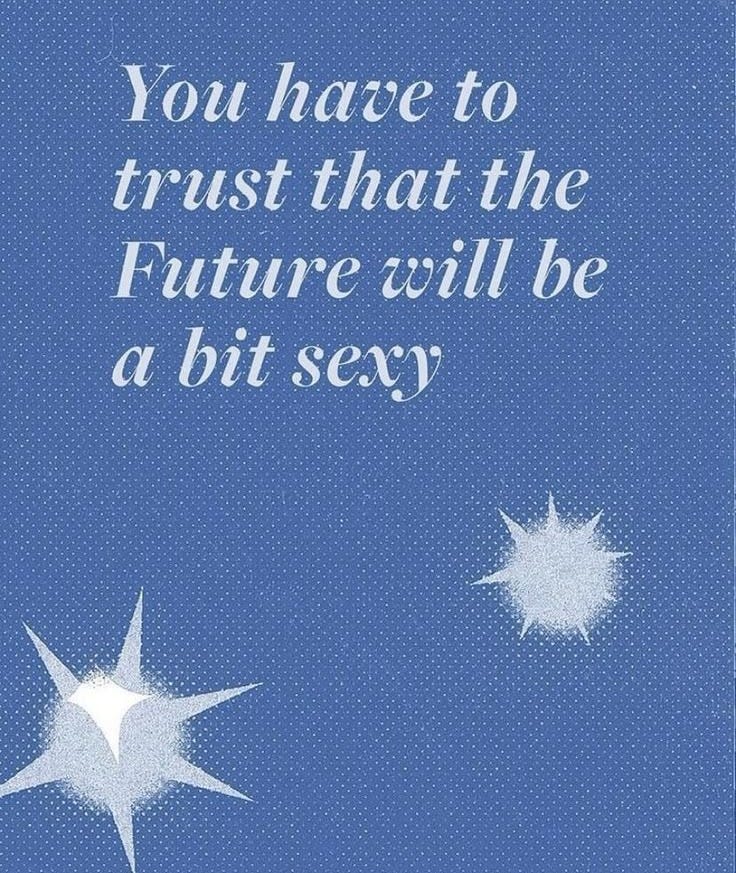the self-pursuit experiment: what happened when i stopped giving a f*ck about everyone else's path
some thoughts on why you should PURSUE YOUR DAMN SELF
I remember the first time I truly felt lost. It wasn't the geographic disorientation of wandering down unfamiliar streets or the momentary panic when you can't find your car in a sprawling parking lot. It was something deeper—a sense that I had somehow misplaced myself amid the cluttered expectations and well-worn paths that others had laid before me.
I was twenty-seven, ostensibly successful by conventional metrics, but haunted by a question that seemed to follow me through business meetings and casual conversations alike: Is this really what I want? The query itself felt like a betrayal of everything I'd worked toward, a crack in the foundation of the identity I'd so carefully constructed. After all, wasn't this exactly what I'd been pursuing all along? The career, the relationships, the life that checked all the appropriate boxes?
And yet, there I was, standing in my carefully curated high-rise apartment with city views one unremarkable Tuesday evening, struck by the sudden realization that I couldn't remember the last time I had made a decision that wasn't in some way influenced by external validation or societal momentum. I had been pursuing everything except myself.
The Misdirection of Conventional Wisdom
We are told, from our earliest moments of cognition, to pursue things. Pursue education. Pursue a career. Pursue relationships. Pursue financial stability. Pursue home ownership. Pursue hobbies (but only the productive ones). Pursue happiness (though preferably through achievement). The directives come at us from well-meaning parents, ambitious teachers, glossy magazines, and the constant buzz of social media benchmarks.
There's nothing inherently wrong with these pursuits. They can lead to security, connection, fulfillment, and moments of genuine joy. The trouble begins when we pursue them without first understanding who we are and what truly moves us at our core—when we mistake the path for the destination, the vehicle for the journey.
I've come to believe that this is why so many of us find ourselves successful yet unsatisfied, accomplished yet empty, connected yet alone. We've been diligently pursuing lives without first becoming acquainted with the person who must live them.
This isn't a new revelation, of course. Throughout history, philosophers and spiritual teachers have emphasized the importance of self-knowledge. From Socrates' admonition to "know thyself" to Jung's work on individuation, the message has remained consistent: external pursuits without internal alignment lead to a fractured existence.
Yet somehow, despite this wisdom echoing through millennia, we still find ourselves collectively confused, chasing careers and lifestyles that look impressive from the outside but feel hollow from within. Perhaps this is because self-pursuit is inherently more difficult than external pursuit. It requires us to sit with ambiguity, to question our conditioning, to face our shadows, and to acknowledge that we may have been running in the wrong direction all along.
What Does It Mean to Pursue Yourself?
When I first began to consider what it might mean to "pursue myself," I found the concept both compelling and confusing. Was this just another form of self-improvement—another thing to add to my already overwhelming to-do list? Another way to find myself lacking?
No. I've come to understand that pursuing yourself is fundamentally different from pursuing self-improvement. Self-improvement assumes there is something wrong with you that needs fixing. Self-pursuit assumes there is something true within you waiting to be discovered and expressed.
Pursuing yourself means embarking on the adventure of becoming intimately acquainted with who you are beneath the layers of conditioning, expectation, and adaptation. It means understanding your unique constellation of values, desires, talents, limitations, wounds, and wonders. It means developing a relationship with yourself that is characterized by curiosity rather than criticism, compassion rather than comparison, and patience rather than perfectionism.
There's a radical gentleness to this approach that runs counter to our achievement-oriented culture. Pursuing yourself isn't about becoming better, stronger, faster, smarter, or more successful. It's about becoming more authentically yourself—more aligned with your own nature, more attuned to your own rhythms, more accepting of your own complexity.
I'm not suggesting that this is easy. In fact, it may be the most challenging pursuit of all. It requires us to question deeply held beliefs, to dismantle patterns that once served as protection, to disappoint others who have invested in our former path, and to venture into the unknown territory of our own becoming. But I've found that it's the only pursuit that doesn't end in diminishing returns. Everything else eventually loses its luster; only the journey toward authentic selfhood continues to yield deeper understanding and more genuine fulfillment.
The Components of Self-Pursuit
So what does it actually look like to pursue yourself? Based on my own stumbling journey and the wisdom I've gathered from others further along the path, I've come to understand it as a multi-faceted exploration with several key components:
1. Pursuing Physical Wellbeing
Our bodies are not separate from who we are—they are the living, breathing vessels through which we experience our lives. Pursuing physical wellbeing isn't about achieving some idealized aesthetic or performing impressive athletic feats. It's about developing a relationship with your body based on respect, attentiveness, and care.
This means learning to listen to your body's signals rather than overriding them. It means discovering how your unique physiology responds to different foods, movements, sleep patterns, and environments. It means recognizing that your energy is not infinite and that rest is not laziness but an essential component of sustainable vitality.
When I first began to pursue physical wellbeing in this way, I was shocked by how little I knew about my own body despite having lived in it for decades. I had been ignoring its whispers until they became screams, pushing through fatigue because I thought that's what determined people do, treating illness as an inconvenience rather than information.
As I learned to tune in rather than power through, I discovered that my body had wisdom to offer. Its fluctuating energies weren't character flaws but natural rhythms to be respected. Its preferences weren't weaknesses but important data about what helps me thrive. Its limitations weren't failures but boundaries to be honored.
Pursuing your physical wellbeing means becoming the foremost expert on your own body—not by reading studies about humans in general, but by paying attention to the specific human that you are. It means making choices from this place of embodied self-knowledge rather than external prescriptions about what should work for everyone.
2. Pursuing Emotional Intelligence
Many of us were taught, directly or indirectly, that certain emotions are acceptable while others are problematic. We learned to suppress anger, hide fear, push through sadness, and present a socially appropriate emotional façade regardless of our internal experience.
These adaptations may have helped us navigate challenging circumstances, especially in childhood when we had limited options. But continuing to operate from these patterns as adults leaves us disconnected from a crucial aspect of our humanity and a valuable source of information about what matters to us.
Pursuing emotional intelligence means developing the capacity to recognize, name, feel, and respond appropriately to the full spectrum of human emotions. It means understanding that emotions are neither good nor bad—they are simply data about how we're experiencing our lives at any given moment.
When I began this aspect of self-pursuit, I realized that I had been living with a severely restricted emotional vocabulary. I was "fine" or "stressed" or occasionally "happy," but the rich nuances of emotional experience remained largely unavailable to me. I couldn't access what I couldn't name, and I couldn't process what I couldn't access. Needless to say, I was not emotionally regulated when I began pursuing myself.
Learning to identify subtle emotional states—distinguishing between anxiety and excitement, between melancholy and grief, between irritation and rage—opened up new dimensions of self-understanding. I began to see how my emotions were connected to my values, how they provided important information about my boundaries, and how they could guide me toward what truly mattered if I was willing to listen.
This doesn't mean becoming ruled by emotions or using them as excuses for harmful behavior. Rather, it means developing a relationship with your emotional life characterized by awareness, acceptance, and discernment. It means neither suppressing nor indulging your emotions, but instead allowing them to flow through you, inform you, and then release when they've delivered their message.
3. Pursuing Mental Clarity
Our minds are magnificent meaning-making machines, constantly interpreting our experiences and creating narratives about ourselves and the world. But without conscious attention, these interpretations and narratives often operate on autopilot, shaped more by past conditioning than present reality.
Pursuing mental clarity means becoming aware of your thought patterns, belief systems, and perceptual filters. It means learning to distinguish between helpful thinking that serves your wellbeing and unhelpful rumination that keeps you stuck in circles of anxiety, judgment, or limitation.
When I began to pay attention to my thought patterns, I was astonished by how many of my seemingly "natural" perspectives were actually inherited beliefs that I had never questioned. I held assumptions about success, relationships, and worth that had been passed down through family dynamics, educational systems, and cultural messages—assumptions that didn't necessarily align with my actual experience or values.
Developing mental clarity doesn't mean eliminating all negative thoughts or achieving some sort of permanent state of psychological perfection. Rather, it means establishing a different relationship with your mind—becoming less identified with your thoughts and more able to observe them with discernment.
This kind of mental clarity creates space for creativity, curiosity, and new possibilities. When you're not trapped in rigid thinking patterns or unconscious beliefs, you become more available to innovative ideas, fresh perspectives, and the kind of cognitive flexibility that allows for growth and adaptation.
4. Pursuing Spiritual Connection
I use the term "spiritual" with some hesitation, knowing that it carries different connotations for different people. By spiritual connection, I mean developing a relationship with something larger than your individual ego—whether you conceptualize that as God, nature, collective consciousness, creative energy, or simply the mystery of existence itself. (For me, currently, it’s somewhere between quantum physics and what Rick Rubin refers to as ‘The Source’.)
This aspect of self-pursuit involves exploring questions of meaning, purpose, and significance. It means considering not just what you want to do or achieve, but why those things matter to you and how they connect to what you value most deeply.
My own journey with spiritual connection has been non-linear and at times uncomfortable. Raised in a particular religious tradition, I had to navigate the complex process of discerning which aspects of that tradition resonated with my authentic experience and which felt imposed or disconnected from my lived reality.
What I've discovered is that spiritual connection doesn't require adherence to any specific belief system or religious practice. Rather, it involves cultivating awareness of the moments when you feel most alive, most connected, most in touch with something meaningful beyond the mundane happenings of daily life.
For some, this might happen through formal religious observance. For others, it might occur while creating art, being in nature, engaging in service to others, or experiencing states of flow in work or play. The particular avenue matters less than the quality of connection it facilitates—a sense of being part of something larger than your individual concerns, a feeling of alignment with what truly matters to you.
5. Pursuing Authentic Relationships
Humans are inherently social creatures. Our sense of self develops in relationship with others, and our wellbeing is inextricably linked to the quality of our connections. But not all relationships contribute equally to our flourishing.
Pursuing authentic relationships means becoming increasingly discerning about the people with whom you spend your time and energy. It means seeking connections characterized by mutual respect, genuine interest, appropriate vulnerability, and room for each person to grow and change.
In my own life, I've had to face the uncomfortable truth that some relationships that had been central to my identity were actually based more on habit, convenience, or shared history than on true compatibility or mutual enrichment. Making changes in these relationships—whether through having difficult conversations, creating new boundaries, or in some cases letting go entirely—has been among the most challenging aspects of pursuing myself.
Yet I've found that as I've become more authentic in my self-expression, I've naturally attracted relationships that support rather than constrain my growth. When you know yourself more clearly, you communicate your needs more effectively. When you accept yourself more completely, you require less validation from others. When you value yourself appropriately, you tolerate less mistreatment or misalignment. I think we become mirrors in this way.
Authentic relationships don't demand perfection from either party. They allow for mistakes, differences, and the messiness of being human. But they do require honesty, respect, and a shared commitment to seeing and supporting each other's essential nature rather than trying to shape each other into preconceived molds.
The Revelation of Path
Perhaps the most intriguing aspect of the advice to "pursue yourself" is the suggestion that doing so will eventually reveal the right path forward. There's something almost mysterious about this proposition—the idea that by turning inward rather than looking outward for direction, we ultimately find the way that's uniquely ours to walk.
I've come to believe that this works because pursuing yourself leads to a kind of internal alignment that makes decision-making clearer and more intuitive. When you know your true values, understand your authentic preferences, and have developed a compassionate relationship with all aspects of yourself, external choices become less fraught and more fluid.
This doesn't mean that every decision becomes easy or that uncertainty disappears entirely. Life remains complex, and meaningful choices often involve tradeoffs. But pursuing yourself provides an internal compass that helps you navigate these complexities with greater confidence and less second-guessing.
I've experienced this in my own life as a shifting relationship with decision-making. Choices that once caused me intense anxiety—whether to take a particular job, pursue a specific relationship, or move to a new city—now feel more like interesting experiments in alignment rather than terrifying permanent commitments. I've developed more trust in my ability to adjust course if needed, to learn from whatever unfolds, and to use each experience as another opportunity for self-discovery. I actually think of this now as literally A/B testing my life.
This is not the kind of clarity that comes from having every detail of your future mapped out. Rather, it's the clarity that emerges from knowing who you are and what matters to you, and then making choices from that place of self-awareness rather than from fear, should's, or external expectations. (And of course, always updating our priors so we can make better decisions in the future, as well!)
The Courage to Begin Where You Are
If you're feeling lost, confused, or unsure of your direction—as I was when I began this journey—the invitation to pursue yourself might feel simultaneously appealing and overwhelming. How do you begin something so abstract and far-reaching? What if you've spent so long disconnected from yourself that you don't even know where to start?
The beauty of this pursuit is that it can begin exactly where you are, with whatever level of self-knowledge you currently possess. You don't need special preparation or prerequisites. You need only the willingness to turn toward yourself with curiosity and compassion, and to begin asking questions rather than demanding immediate answers.
Some practical starting points might include:
Paying attention to your energy. What activities, environments, and interactions leave you feeling energized rather than depleted? What consistently drains you despite your belief that you "should" enjoy it?
Noticing your natural interests. What topics, questions, or activities consistently capture your attention and curiosity, even when they serve no obvious practical purpose?
Exploring your values. What matters to you most deeply? Not what you think should matter based on your upbringing or social context, but what actually evokes a sense of meaning and significance for you personally?
Examining your patterns. What recurring themes, challenges, or tendencies do you notice in your life? These patterns often contain important clues about your core wounds, gifts, and potential areas for growth.
Experimenting with expression. Try different forms of creative or physical expression without concern for mastery or outcome. Simply notice what feels most natural or satisfying as a way of expressing your inner experience.
These explorations don't require dramatic life changes or grand gestures. They can happen within the context of your existing life, gradually shifting your awareness and creating space for your authentic self to emerge.
*Quick note: I use ChatGPT and Claude for daily journaling. This helps me see my patterns more clearly and come up with ways to shift more quickly. Using an LLM for life-tracking (or A/B testing) in this capacity is probably one of the highest ROI things you can do for yourself—and in pursuit of yourself—in this digital age. Cannot recommend this enough.
The Paradox of Self-Pursuit
There's an interesting paradox at the heart of pursuing yourself: the more deeply you engage with this journey, the less attached you become to any fixed idea of who you are. Rather than solidifying into a more rigid identity, you often discover a greater capacity for fluidity, adaptability, and comfort with the ever-changing nature of experience. As someone who’s never had a niche, this has been one of my personal favorite aspects of the journey.
I've found that pursuing myself has led not to an inflated sense of self-importance, but rather to a more flexible relationship with my identity. I'm less defensive when challenged, less devastated by failure (in fact, I try to fail more), and less dependent on external validation of my worth—not because I've developed unshakable self-confidence, but because I've come to understand that my essential value doesn't depend on any particular achievement, attribute, or outcome.
This creates an unexpected freedom. When you're not desperately trying to become someone in order to feel worthy or secure, you're free to explore, experiment, learn, and grow without the crushing pressure of existential stakes. You can pursue interests, relationships, and experiences from a place of genuine curiosity rather than identity reinforcement.
In this way, pursuing yourself ultimately creates more space for engagement with the world beyond yourself. It's not a retreat into narcissistic self-absorption, but rather a journey toward the kind of internal security that allows for more generous, creative, and courageous participation in the larger human enterprise.
Conclusion: The Most Important Journey
I began this reflection with a moment of feeling lost—that disorienting Tuesday evening when I realized I had been pursuing everything except myself. Several years later, I can't claim to have arrived at some final destination of complete self-knowledge or unwavering authenticity. I still have blind spots, inconsistencies, and areas where my actions don't fully align with my values.
But I'm no longer lost in the way I was then. By turning toward myself with curiosity rather than criticism, patience rather than pressure, I've developed a different kind of relationship with my own becoming. I've learned to trust the process of unfolding rather than demanding immediate clarity. I've discovered that pursuing myself is not a finite task to complete but an ongoing conversation to sustain.
If you find yourself unsure of your direction or dissatisfied despite apparent success, consider the possibility that the most important pursuit right now might not be a particular career path, relationship, or achievement. It might be the pursuit of yourself—your authentic nature, values, gifts, and desires. Not as a project of self-improvement, but as an adventure of self-discovery.
The path that emerges from this pursuit won't look exactly like anyone else's, because it will be uniquely yours—shaped by your particular constellation of experiences, talents, wounds, values, and dreams. It won't be perfect or free from obstacles, but it will be authentic. And in a world that constantly pushes us toward conformity and external measures of success, the courage to pursue and express your authentic self may be the most important contribution you can make.
So if you don't know what to pursue right now, pursue yourself. Become the healthiest, happiest, most healed, most present, most confident version of yourself. Not because these qualities will make you more productive or successful (though they might), but because they will make you more fully alive, more fully human, more fully yourself. And from that place of authentic being, the doing will naturally follow—not as a desperate search for validation, but as a genuine expression of who you are.
The world doesn't need more people pursuing paths that leave them successful but unfulfilled, accomplished but alienated from themselves. It needs people with the courage to know themselves deeply and to bring their authentic gifts forward, whatever those may be. It needs you—not the you that you think you should be, but the you that you truly are.
Here’s to the journey ahead—may we make our future selves proud!
As always, thanks for reading with me. Writing has been an integral part of my journey so if you enjoyed this post, please consider hitting the like button and/or sharing it to help boost its visibility. I appreciate you so much. xo
















If you have any tips re: using Claude for self-pursuit would love to get them. Thanks for this one!!!
eudaimonia